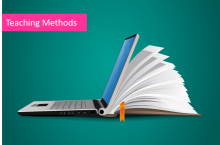
The didactic activities are divided into frontal lessons and in exercises, workshops and seminars.
The Master’s Degree in Business Consulting and Management promotes the conduct of multidisciplinary seminars that enable students to compare knowledge and methodologies.
Some lecturers can be delivered in whole or in part in "e-learning" mode.
Lessons are the preferred tool when the purpose of the training moment is to convey concepts, information, and interpretation patterns.
The frontal lessons are used to acquire theoretical knowledge through a style-based learning method. They are therefore generally a suggested tool when the participants in the training activity have no knowledge of the content discussed.
Depending on the different phases and different contents, the lesson can take the form of a frontal lesson or a more interactive teaching mode in which the teacher acts as a facilitator of confrontation and discussion with and between participants.
This methodology is identified in a place where the central figure in the learning process remains, however, the participant, with its timing-rhythms, its starting cognitive levels, its patterns of learning understanding of reality. These are all elements considered by the Teacher in conducting the lesson in order to maximize the learning of each participant.
Exercises tend to reinforce and stabilize the notions transmitted during the lesson.
They also have the purpose of training to apply theoretical notions to concrete reality by solving problems and finding effective solutions.
Exercises can be group or individual.
In the first form, participants in the training activity are subdivided into smaller subgroups each of which is assigned a task to be carried out in a given time and subsequently presented in plenary.
Individual tutorials require a single study that leads the partecipant to reflect on possible solutions to a particular problem.
The lab is conceived not just as the place where students practice what they have learned at a theoretical level through the experimentation of standardized protocols, typical of the scientific disciplines, but above all as a teaching methodology which involves all disciplines, as it facilitates the learning process that enables students to acquire "know" through "doing".
Professional seminars are part of the so-called integrative learning, which involves the conduct of in-depth meetings where world business and academic representatives are hosted. Professional seminars are held alongside the lessons
Through this teaching methodology students have the opportunity to have more contacts with the operational reality and to verify the practical application of the acquired theoretical knowledge.
Further teaching methods used in individual lessons are the “case”, the “business game” and the “role-play”.
The business game is a business management simulation where participants enter the "role" of managers of a specific business reality, working to make strategic and operational decisions and experiment with strategies and policies in an interactive competitive environment, so as to favor a higher learning level that is that of expert knowledge.
The Business Game is a tool that ensures maximum engagement and allows students to reach different teaching goals in a ludic context, with the ability to compare and evaluate in terms of consistency and effectiveness both from teachers and from others participants, the results obtained by each team participants in the BG.
The case is a written description of a problematic situation with sufficient details to allow participants to determine the appropriate action to take. This method simulates reality, rejoins the participants' experiences and knowledge, engages them more actively in the learning process and forces them to apply theory to practice.
The content of the case offers a risk-free trial situation and is a useful "gym" to measure and develop its ability to analyze complex situations, identify possible problem solving options, choose the action lines considered more appropriate, enjoying the possibility of comparing the different positions taken by the individual participants and / or by different subgroups.
Role-play is a particular kind of exercise that requires participants to play for a limited time the role of "actors" to represent some roles in interacting with each other, while other participants act as content "observers" and of the processes that the representation manifests. It is in fact an improvised and quasi-theatral representation of a scene similar to what may happen in the company. An "accident" is put in place and gives participants the opportunity to review their behavior, to practice and experience new attitudes, to emphasize different points of view, and to receive feedback on their behavior.
E-learning is a particular distance learning methodology that uses the internet network to provide specific educational services ranging from support to traditional teaching activites, graduate courses, postgraduate degrees.
E-learning is generally not a substitute for traditional forms of didactics, but it wants to be an additional service that the university offers in the global education market, addressing three types of users:
a) the "traditional" student, who lives near the campus and who follows the lectures steadily;
b) a student with special educational needs (off-course, off-site, foreigner, disabled, etc.) who for various reasons can not directly follow the lessons;
c) a graduate who is already in or is about to enter the workplace intending to acquire specific additional skills.
For more information on how to access the platform and content please refer to the following link http://www.unime.it/it/cds/management-impresa/servizi-agli-studenti/e-learning


